Nancy AllbrittonKenan Professor of Chemistry and Biomedical Engineering and Chair of the Joint Department of Biomedical Engineering, University of North Carolina and North Carolina State University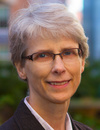 Nancy L. Allbritton is the Kenan Professor of Chemistry and Biomedical Engineering and Chair of the Joint Department of Biomedical Engineering at the University of North Carolina at Chapel Hill (UNC) and North Carolina State University (NC State). Her research focuses on the development of novel technologies for applications in single-cell analysis, micro-arrays and fluidics, and organ-on-chip and has resulted in over 180 full-length journal publications and patents and led to 15 commercial products. Her research program has been well funded by the National Institutes of Health with $60 million in grant funding since 1994. Four companies have been formed based on her research discoveries: Protein Simple (acquired by Bio-Techne in 2014 for $308M), Intellego (subsequently integrated into International Rectifier), Cell Microsystems (www.cellmicrosystems.com), and Altis Biosystems (www.altisbiosystems.com). Dr. Allbritton is a Fellow of the American Association for the Advancement of Science, the American Institute for Medical & Biological Engineering, and the National Academy of Inventors. She obtained her B.S. in physics from Louisiana State University, M.D. from Johns Hopkins University, and Ph.D. in Medical Physics/Medical Engineering from the Massachusetts Institute of Technology, with a postdoctoral fellowship at Stanford University. |
Shaochen ChenProfessor and Chair, NanoEngineering Department, University of California-San Diego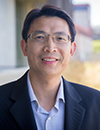 Dr. Shaochen Chen is a Professor and Chair in the NanoEngineering Department and Professor in the Bioengineering Department at the University of California, San Diego (UCSD). He is the founding co-director of the Biomaterials and Tissue Engineering Center at UCSD. Before joining UCSD, Dr. Chen had been a Professor and a Henderson Centennial Endowed Faculty Fellow in Engineering at the University of Texas at Austin from 2001 to 2010. Between 2008 and 2010, he served as the Program Director for the Nanomanufacturing Program of the US National Science Foundation (NSF). Dr. Chen’s primary research interests include: 3D printing and bioprinting, biomaterials and nanomaterials, stem cell and regenerative medicine, and tissue engineering. He has published over 160 papers in top journals. Among his numerous awards, Dr. Chen received the NSF CAREER award, ONR Young Investigator award, and NIH Edward Nagy New Investigator Award. For his seminal work in 3D printing, bioprinting, and nanomanufacturing, he received the Milton C. Shaw Manufacturing Research Medal from the American Society of Mechanical Engineers (ASME) in 2017. Dr. Chen is an elected member of European Academy of Sciences and Arts, a Fellow of AAAS, AIMBE, ASME, SPIE, and ISNM. He is a co-founder of Allegro 3D, Inc. commercializing 3D bioprinting technologies. |
Dong-Woo ChoProfessor, Pohang University of Science and Technology (POSTECH)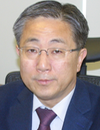 Prof. Dong-Woo Cho received his Ph.D. in Mechanical Engineering from the University of Wisconsin-Madison in 1986. Ever since, he has been a professor of Department of Mechanical Engineering at the Pohang University of Science and Technology. He is director of the Center for Rapid Prototyping-based 3D Tissue/Organ printing. His research interests include 3D microfabrication based on 3D Printing technology, its application to tissue engineering, and more generally to bio-related fabrication. He has recently focused on tissue/organ printing technology and development of high-performance bio-inks. He has received several prestigious awards in these academic areas. He serves or has served on the editorial boards of several International Journals. Prof. Cho has published over 240 academic papers in various international journals in the field of manufacturing and tissue engineering, and has contributed chapters to ten books and written a textbook related to tissue engineering and organ printing. |
Paul GatenholmProfessor, Director of 3D Bioprinting Center, Chalmers University of Technology, Sweden; CEO, CELLHEAL AS, Norway Dr. Gatenholm is professor of Biopolymer Technology at Chalmers University of Technology, Founder of 3D Bioprinting Center, and Director of Graduate School at WWSC. He is also Adjunct Professor at Joint School of Biomedical Engineering and Sciences at Virginia Tech and Wake Forest University and Adjunct Professor of Biomaterials at Wake Forest Institute for Regenerative Medicine in Winston-Salem, North Carolina, USA. His research includes biological fabrication through the use of enzymes, cells, and the coordination of biological systems. Dr. Gatenholm is particularly interested in designing and preparing new biomaterials which can replace or regenerate tissue and organs. During past five years he has dedicated his time to development of 3D Bioprinting technology which he believes will revolutionize the field of Medicine. He has published more than 300 papers and edited several books and has more than 9000 citations. He is elected member of Swedish Royal Academy of Engineering Sciences. Dr Gatenholm is an entrepreneur and is currently CEO of new biotech start up in Oslo, Norway. |
Michael GelinskyProfessor and Head, Center for Translational Bone, Joint and Soft Tissue Research, Faculty of Medicine, Technische Universität Dresden Michael Gelinsky received his PhD in Chemistry from Freiburg University (Germany). In 1999 he moved to TU Dresden and worked for around 10 years at the department of Materials Science, heading his own group at the newly founded Max Bergmann Center of Biomaterials from 2002. In 2010 he was appointed Full Professor at the Faculty of Medicine and head of the Centre for Translational Bone, Joint and Soft Tissue Research (tu-dresden.de/med/tfo). His work is focused on biomaterials and scaffold development, tissue engineering and regenerative therapies, mostly for musculoskeletal tissues. His group is also very active in the field of additive manufacturing of implants and biofabrication technologies. Michael Gelinsky is currently President of the German Society for Biomaterials, is a member of the Board of Directors of the International Society for Biofabrication (ISBF) and has been appointed as coordinator of an ESA Topical Team on “3D Bioprinting of living tissue for utilization in space exploration and extraterrestrial human settlements”. He also is member of the ESA Facility Science Team (FST) for the development of a bioprinter and 3D cell culture system for the ISS. |
Linda GriffithProfessor, Massachusetts Institute of Technology (MIT)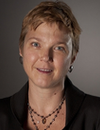 Linda G. Griffith, PhD, is the School of Engineering Teaching Innovation Professor of Biological and Mechanical Engineering and MacVicar Fellow at MIT, where she directs the Center for Gynepathology Research and the Human Physiome on a Chip Project supported by the DARPA/NIH-funded Microphysiological Systems Program. Dr. Griffith received a Bachelor's Degree from Georgia Tech and a PhD degree from the University of California at Berkeley, both in chemical engineering. Dr. Griffith’s research is in the field of regenerative medicine and tissue engineering. Her laboratory, in collaboration with J. Upton and C. Vacanti, was the first to combine a degradable scaffold with donor cells to create tissue-engineered cartilage in the shape of a human ear. The 3D Printing Process she co-invented for creation of complex scaffolds has been commercialized for manufacture of FDA-approved scaffolds for bone regeneration. She is also a pioneer in devising ways to control nano-scale stimulation of cells by molecular cues, and in creation of 3D tissue models for drug development. The 3D perfused “LiverChip” liver tissue culture technology has been commercialized for applications in drug development. A current focus is integration of tissue engineering with systems biology, with an emphasis on endometriosis and other women’s reproductive diseases. She is a member of the National Academy of Engineering and the recipient of a MacArthur Foundation Fellowship, the Popular Science Brilliant 10 Award, NSF Presidential Young Investigator Award, the MIT Class of 1960 Teaching Innovation Award, Radcliffe Fellow and several awards from professional societies. She has served as a member of the Advisory Councils for the National Institute for Dental and Craniofacial Research and the National Institute of Arthritis, Musculoskeletal and Skin Diseases at NIH. As chair of the Undergraduate Curriculum Committee for Biological Engineering at MIT, she led development of the new Biological Engineering SB degree program, which was approved in 2005 as MIT’s first new undergraduate major in 39 years. |
Reyk HorlandCEO, TissUse GmbH Dr. Reyk Horland was appointed CEO of TissUse in October 2020 following 8 years as Head of Business Development. His business network includes leading pharmaceutical and consumer product companies as well as regulatory authorities and outstanding research institutions worldwide. Prior to TissUse, Dr. Horland studied Biotechnology at the Technische Universität Berlin and specialized in Medical Biotechnology. During his academic career he was involved in various tissue engineering programs, all with a focus on the commercialization of the respective products. |
Roger KammCecil and Ida Green Distinguished Professor of Biological and Mechanical Engineering, Massachusetts Institute of Technology (MIT)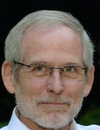 Kamm is currently the Cecil and Ida Green Distinguished Professor of Biological and Mechanical Engineering at MIT, where he has served on the faculty since 1978. Kamm has long been instrumental in developing research activities at the interface of biology and mechanics, formerly in cell and molecular mechanics, and now in engineered living systems. Current interests are in developing models of healthy and diseased organ function using microfluidic technologies, with a focus on vascularization. Kamm has fostered biomechanics as Chair of the US National Committee on Biomechanics (2006-2009) and of the World Council on Biomechanics (2006-2010). Kamm currently directs the NSF Science and Technology Center on Emergent Behaviors of Integrated Cellular Systems. He is the 2010 recipient of the ASME Lissner Medal (American Society of Mechanical Engineering) and the 2015 recipient of the Huiskes Medal (European Society of Biomechanics), both for lifetime achievements, and is the inaugural recipient of the ASME Nerem Medal for mentoring and education. He was elected to the National Academy of Medicine in 2010. Kamm is co-founder of two companies, Cardiovascular Technologies and AIM Biotech, a manufacturer of microfluidic systems for 3D culture. |
Norio NakatsujiChief Advisor, Stem Cell & Device Laboratory, Inc. (SCAD); Professor Emeritus, Kyoto University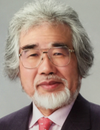 Prof. Norio Nakatsuji is Professor Emeritus of Kyoto University and Founding Director of its Institute for Integrated Cell-Material Sciences. He is also Chief Advisor of Stem Cell & Device Laboratory, Inc. and CEO of Kyoto Stem Cell Innovation, Inc. |
Shoji TakeuchiProfessor, Center For International Research on Integrative Biomedical Systems (CIBiS), Institute of Industrial Science, The University of Tokyo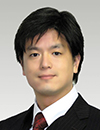 Shoji Takeuchi received the B.E, M.E., and Dr. Eng. degrees in mechanical engineering from the University of Tokyo, Tokyo, Japan, in 1995, 1997, and 2000, respectively. He is currently a Professor in the Center for International Research on Integrative Biomedical Systems (CIBiS), Institute of Industrial Science (IIS), University of Tokyo. Since 2008, he is a director of Collaborative Research Center for Bio/Nano Hybrid Process at IIS. His current research interests include membrane protein chips, bottom-up tissue engineering and biohybrid MEMS. He received several awards including Young Scientists' Prize, the Commendation for Science and Technology by the Minister of Education, Culture, Sports, Science and Technology in 2008, the JSPS prize from the Japan Society for the Promotion of Science in 2010. |




